Though it’s almost 8 years since His Grace Most Rev Dr Rogers Onuwabughichi Uwadi who hailed form Mbaise, the largest clan in Imo State passed on, his legacy lives on. When I was in Nigeria with the Cliff College Distance Learning programme, I visited Archbishop Uwadi at his Bishop’s court in 2009 in the company of Very Rev Drs Chinonyerem Ekebuisi and Evans Onyeama to conduct an interview on Methodist episcopacy as part for my post graduate studies in United Kingdom. Archbishop Uwadi, a student of Patriarch Professor Bolaji Idowu belonged to the class of well refined, erudite historian and preacher of God’s Word. Chief Kanu Offonry and Very Rev Ike Godwin Chukwuezuo in their co-authored book, The Triumph of Faith, aptly described Archbishop Uwadi inspiring impressions that could make one to ‘mistake him for a professor of Igbo Language when he chooses to preach in Igbo.’
The Uwadi family hail from Umuonyeutu in Umunanwiri Ife and Rogers as first son was born at Ife Maternity on Thursday (Nkwo) 15th July, 1939. He was given the name Rogers meaning spear of fame and Onuwuabughichi which literally means ‘what people think and say may be different from the wishes of God.’ Archbishop Uwadi started his education at St Michael’s Anglican School, Aba, where he joined the Choir of St Michael before he moved to Government School, Aba. It was at St Michael that Archbishop Uwadi first met the former prelate, Methodist Church Nigeria, His Eminence Sunday Mbang who was ‘then living with Dr and Mrs Ekpo at Aba.’
Archbishop Uwadi later passed his ‘entrance to Methodist College, Uzuakoli while His Eminence Mbang passed the entrance to Methodist High School, Oron. Archbishop Uwadi obtained the Cambridge School Certificate in 1960 followed by the Higher School certificate in 1962 with a scholarship from the entire expatriate staff of the Uzuakoli College. He was also awarded scholarship by Engr Benton, and expatriate Engineer with the Ministry of Work, Enugu and in September, 1963 gained admission into the University of Ibadan where he met Professor Bolaji Idowu, Professor Ferguson, Prof Kenneth Dike, Rev Mike Oye and Prof Sonny Oti. He was very active in the University’s Chapel Choir and the Student Christian Movement (SCM) before he graduated with B.A. (Hon) in Religious Studies in June 1966. He later travelled to United Kingdom in 1967 as a scholar of the World Council of Churches to study at the Western College of Education, University of Birmingham, UK. He obtained post-graduate Diploma in Christian Education in June 1967 and also had a specialised training in Hymnody from the Royal College of Music, Oxford whereby he was able to translate Methodist Hymn Book into Igbo language.
In 1967, the World Council of Churches sent Archbishop Uwadi to Biafra at the inception of the war. At Umuahia, he resumed at Trinity College before he was recalled by the World Council of Churches to join ‘the War Relief Operations under Miss Neil Watson well known social worker of the Methodist Church.’ Archbishop Uwadi served as Provincial Representative of the World Council of Churches for Relief Operations, for Annang and Uyo Provinces of Biafra until the end of the civil war in 1970. At Uyo, ‘his first service as an ordained minister was refugee work with Rev Seth Allison as the camp director. Rev Seth Allison later became the Methodist archbishop of Calabar.
It was at Ibadan that Professor Bolaji Idowu, Archbishop Uwadi’s university teacher noticed his gift and with the agreement of Rev Egemba Igwe, Archbishop Uwadi was marked as a candidate for the Methodist ministry. Despite the presence of Anglican Church in his village, Archbishop Uwadi accepted the offer of serving in the Methodist church. While serving as Vice Principal, Enuda Secondary School, Abiriba, Archbishop Uwadi volunteered at the 1977 Methodist Conference ‘to go on secondment to Trinity Union Theological College to fill the space for Methodist minister.’ The Methodist crisis that started in 1974 spread to Trinity College around 1979 and Archbishop Uwadi almost lost his life hence, he resigned his commission until the Patriarch, Professor Bolaji Idowu intervened through Rt Rev Vincent.
At the expiration of Rt Rev Johnson Poromon’s tenure as the Secretary of Conference, Methodist Church Nigeria, the 1981 Methodist Conference voted and Archbishop Uwadi was elected as the Secretary of Conference. Archbishop Uwadi ‘rose from the rank of a presbyter to become Secretary of Conference and a bishop at the same time,’ and he was consecrated on 29th November, 1981. Archbishop Uwadi’s assumption of office at the peak of the Methodist crisis remains triumph of faith over fear and fighting.
Archbishop Uwadi’s career and ministry development ‘as an ordained minister, school chaplain, and school principal … up to his election and consecration as a bishop in August 1981, and his simultaneous appointment as Secretary of Conference’ was indeed a triumph of faith. Archbishop Uwadi’s bi-episcopal role as a bishop and Secretary of Conference remains unique. He served as bishop Okigwe from 1987, Owerri from 1992 before he was elected as the first Archbishop of Umuahia at the Methodist Conference held at Ikot Ekpene from August 22-29, 1996, and ‘his enthronement and formal inauguration of the Archdiocese took place on Sunday 23rd, February, 1997 at the Wesley Cathedral, Umuahia.’ Archbishop Uwadi later described Umuahia as the ‘heartland of the Methodist Missionary stronghold in Igbo Land.’
Sir Beremako Bob Ewuolonu Ogbuagu, a former archdiocesan Lay President, Umuahia and a close friend of Archbishop described ‘the emergence of Rogers Uwadi, an otherwise total outsider to the Methodist Church and hailing from an area where the church has no roots whatsoever, to become one of the leading spokesmen and authoritative leaders of Methodist Church Nigeria.’ Ogbuagu explained that,’among the institutions, organisations and individuals who directly or indirectly made the greatest impact of Archbishop Uwadi’s ‘life and career are his father, the Methodist College, Uzuakoli, his arts and science tutors at the College, Dr the Hon M I Okara, the University of Ibadan, Professor Bolaji Idowu, the World Council of Churches and the prelate of Methodist Church Nigeria, His Eminence, Dr Sunday Mbang. And without doubt … the loving and inspiring support of his wife, Catherine.’
Archbishop Uwadi’ legacy of service above self was not limited to mission and church work. Archbishop Uwadi as God’s mouth piece accused the Nigerian former military leaders in the 2011 presidential race of using ‘our money which they stole to buy us,’ saying that “God will not agree.” On the Jubilee celebration of Nigeria independence as a sovereign nation, Archbishop Uwadi summons Nigerians to turn 350 degrees back to God, stressing that in this regard, the family and the church were culprits. According to him, all the evil being perpetrated in Nigeria were done by worshippers who belong to the family or one religious organisation or the other. He said, “Our church leaders should come off their shells to discharge their obligations to the nation … the church is chickening out, they have the power to call politicians to order but they are not doing it, but instead they are compromising.”
For Archbishop Uwadi, his guiding motto is, ‘if God puts work into your life, He expects you to put life into your work.’ At Umuahia, Archbishop Uwadi changed ‘the character, environment and landscape of the Archdiocesan headquarters.’ In the words of Rt Rev W A Yobe, Archbishop Uwadi ‘is a man of principle, hardworking and always result oriented … by his social interaction, experience of wide travelling, he has enough knowledge in the field of church work and social responsibility.’ Archbishop Uwadi was one of the most brilliant ministers in the Methodist church, articulate, dogged, steadfast, reliable, and knowledgeable especially in Law and Polity. The contributions of Archbishops Dimoji, Uwadi and Makindipe in any Conference meetings always enhanced quick and positive decisions. In 1987, during the Silver Jubilee of Methodist Church Nigeria autonomy, Archbishop Uwadi’s successor, Archbishop Amos Omodunbi described his predecessor as ‘a young man endowed with a lot of dynamism, divine energy and vision. He is very able competent and resourceful. He immediately on taking over reorganised the headquarters. A man of sterling quality, he contributed in no small measure to the enviable height Methodist Church Nigeria has reached today. His record keeping is immaculate. His articulation is unparalleled. His humour is superb. His mastery of conference meeting is delightful. His knowledge of the constitution is marvellous. At both national and international level, he is a worthy representative of Methodist Church Nigeria.’
When there was the breakdown of communication between the Methodist hierarchy and the members of the proposed Wesley University, Ondo, Planning Committee under the chairmanship of Professor Oduyale, Archbishop Uwadi as a member of the committee played a re-conciliatory role. The legacy of Archbishop Uwadi raised the need to develop a curriculum on Nigerian Methodist Leadership Studies (MLS) in our theological institutions.
It is on note that his last years were increasingly affected by the death of his wife which took an inevitably unkind toll on him before he remarried. Archbishop Uwadi died on 17th September, 2011.

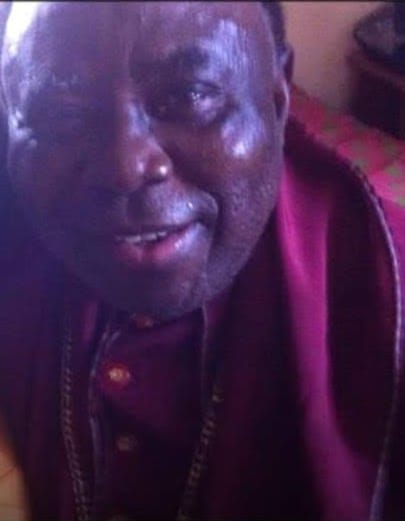
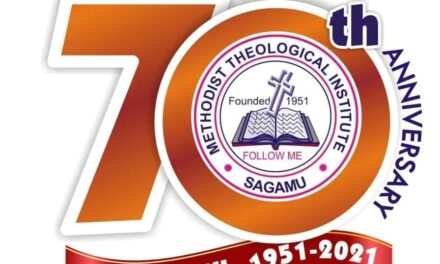
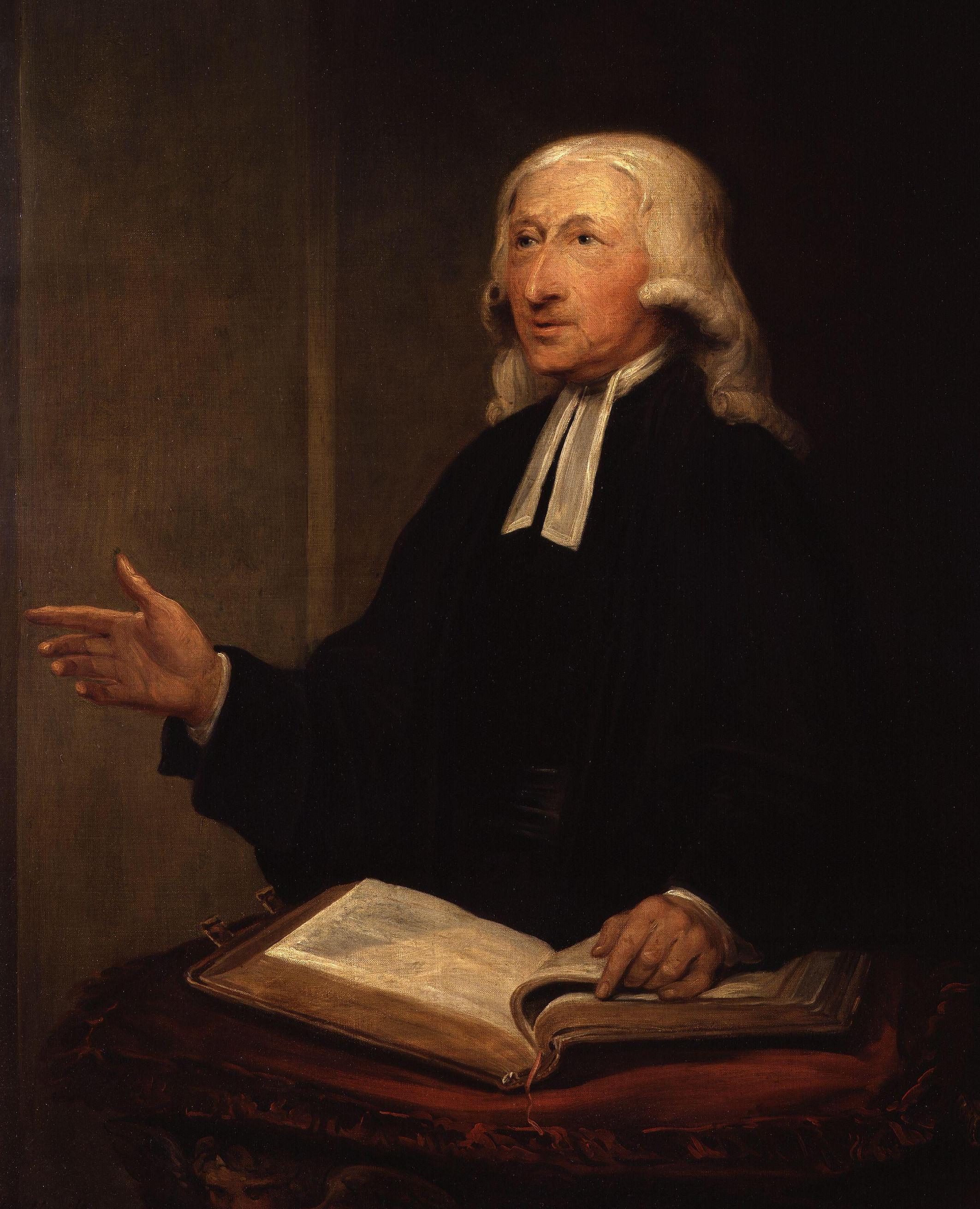
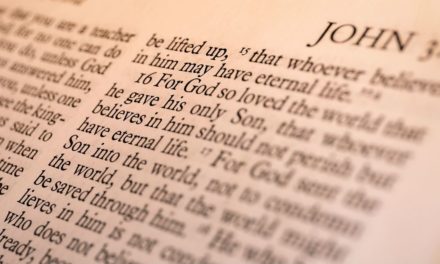
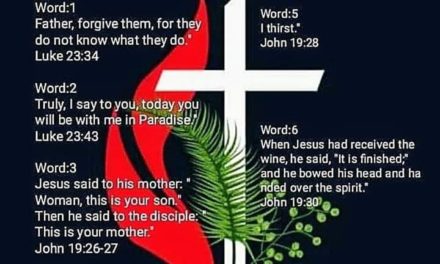
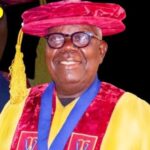
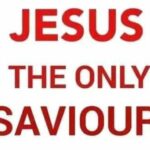
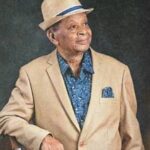
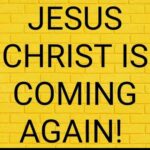
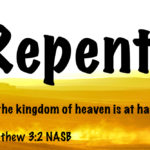
A lovely read on the life of Archbishop Uwadi
Worthy is the Lamb.
so much about my dad i did not know. I come back to this page to relive his legacy. I still believe his death was not natural and will try my best to unravel the mystery behind his demise.
Thanks once again for the write up
I know how much you loved both your parents and particularly your mom who passed on a lot earlier.
It is well, bro! They are in a better place.
Presbyter, thank you as you are keeping the cherished tradition, values and virtues of Methodism alive on this platform especially as we celebrating Aldersgate experience. Your write was unique and inspiring.I remember the unique and unforgettable services of late Most Rev Rogers O Uwadi as a Minister, Presbyter,Bishop, Secretary of Conference and Archbihop in Methodist Church Nigeria as we celebrate his 80th birthday posthumously. He was my very good friend and Confidant. May GOD bless his family and allow him a place of honor at His bosom.Shalom to you all.
Happy renewing Wesley Day Your Eminence. Worthy is the Lamb sir
Shalom to you sir. The Lord has been keeping us, his children, safe.